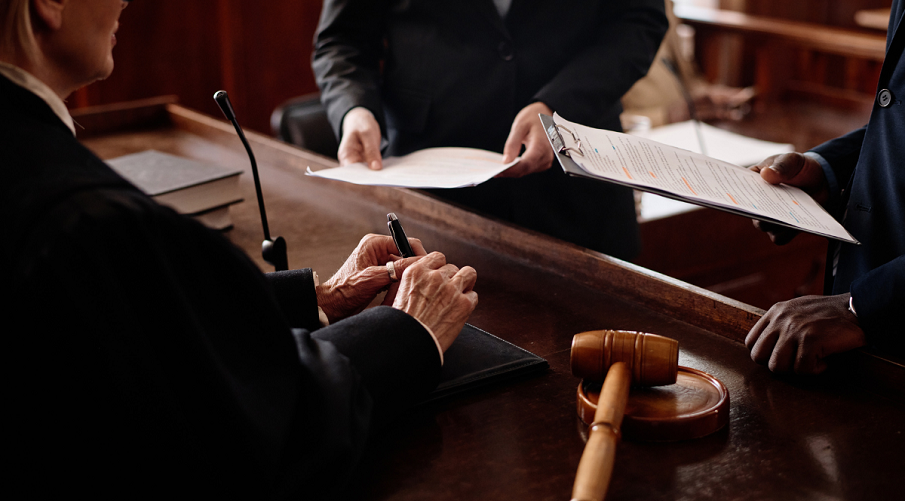Being accused of a crime can be a devastating ordeal.
Your life may be disrupted, your freedom may be threatened, and your reputation could be tarnished for years, depending on the severity of the crime.
But what exactly should the average person expect after being accused of a crime?
And how should you prepare?
What Happens After You’re Accused:

Working With a Lawyer
Your criminal defense lawyer is going to be your greatest asset during this process.
Your criminal defense lawyer is going to help you at every step. In your first interactions, your lawyer will work with you to determine the charges you’re facing, the circumstances of your arrest, and the evidence you might have to absolve yourself.
This is also an excellent opportunity to ask any questions you might have about what’s happening to you or what your best options are.
Your interactions with your lawyer will be totally confidential, so you can tell them anything.
Additionally, they’re legally required to act in your best interests, so you can be sure they’re on your side.
Throughout police interrogations and your custody, your lawyer will guide you on how to answer questions and what to tell the police.
They can also monitor the process to make sure all your rights are respected.
If your rights are infringed, they can take action on your behalf.
Your lawyer will also work with you to negotiate a plea bargain, if relevant.
And if you can’t reach an agreement with the prosecution, they can represent you in trial.
The Process
After being accused of a crime, the process typically goes something like this:
1. Investigation.
When the police have a suspicion that you’ve committed a crime, they may or may not tell you.
Either way, they’ll likely conduct an investigation to determine the likelihood that you’ve committed the crime.
They want to gather as much evidence as possible so they have a strong case against you.
So, depending on the nature and severity of the crime, this process could take a while.
The police may or may not interrogate you during their investigation.
The moment you have any inkling that you’re under suspicion, you should hire a lawyer and follow their advice precisely.
2. Arrest.
If and when the police believe they have enough evidence to secure a conviction, they will arrest you.
If you post bail, you may be able to walk free until your trial.
After your arrest, your lawyer can work with you to start building a strong criminal defense.
This often means gathering evidence of your innocence, defeating the evidence presented against you, and identifying any procedural problems that occurred while you were investigated and arrested.
3. Initial appearance and arraignment.
In many cases, you’ll make an initial appearance and face an arraignment.
At this time, you’ll enter a formal plea.
4. Discovery.
During the discovery phase, lawyers on both sides gather as much evidence as possible, exchange information with each other, and openly explore the details of the case.
This is an opportunity for both sides to become as strong as possible, so the court has a much easier time determining the truth.
Again, depending on the nature and severity of the crime, this process might take a long time.
5. Preliminary hearings.
You may have to go through a preliminary hearing.
Preliminary hearings are designed as mini court cases to determine whether there is enough evidence to move forward with a full trial.
6. Trial.
If you don’t reach a plea bargain, you’ll eventually go to trial.
Most criminal cases are decided with a plea bargain, but if you go through a full criminal trial, the process can be much longer.
7. Sentencing.
After the primary trial, there may be a separate hearing for sentencing, where you’ll learn the consequences you’re going to face if you’re found guilty.
8. Don’t Talk
In nearly all cases, it’s in your best interests not to talk to the police at all, at least, not without a lawyer.
As the Miranda warning suggests, anything you say can and will be used against you in a court of law.
If you slip up and accidentally confess to something, there’s nothing you can do about it.
If you accidentally confess to a different crime, you could rack up more charges against yourself.
And if you make a simple mistake, you could appear to the police like you’re lying or trying to cover something up.
On top of that, police officers are often trained manipulators who can and will lie to you to get you to confess.
You may not even realize that they’re trying to manipulate you.
Accordingly, your best course of action is not to speak to the police at all until your lawyer advises you to do so.
The Outside World
You’ll also need to be prepared for how the outside world is going to be affected by this criminal accusation.
Depending on where you live and the nature of the crime, news of the allegations may spread quickly.
It might be reported on major media channels, or it might simply spread as a rumor.
Either way, you’re going to need to think about your reputation and how you might protect it.
Being accused of a crime is stressful and, in some cases, terrifying.
But with the help of a good criminal defense lawyer, and a bit of patience, you can get through this process one step at a time.






